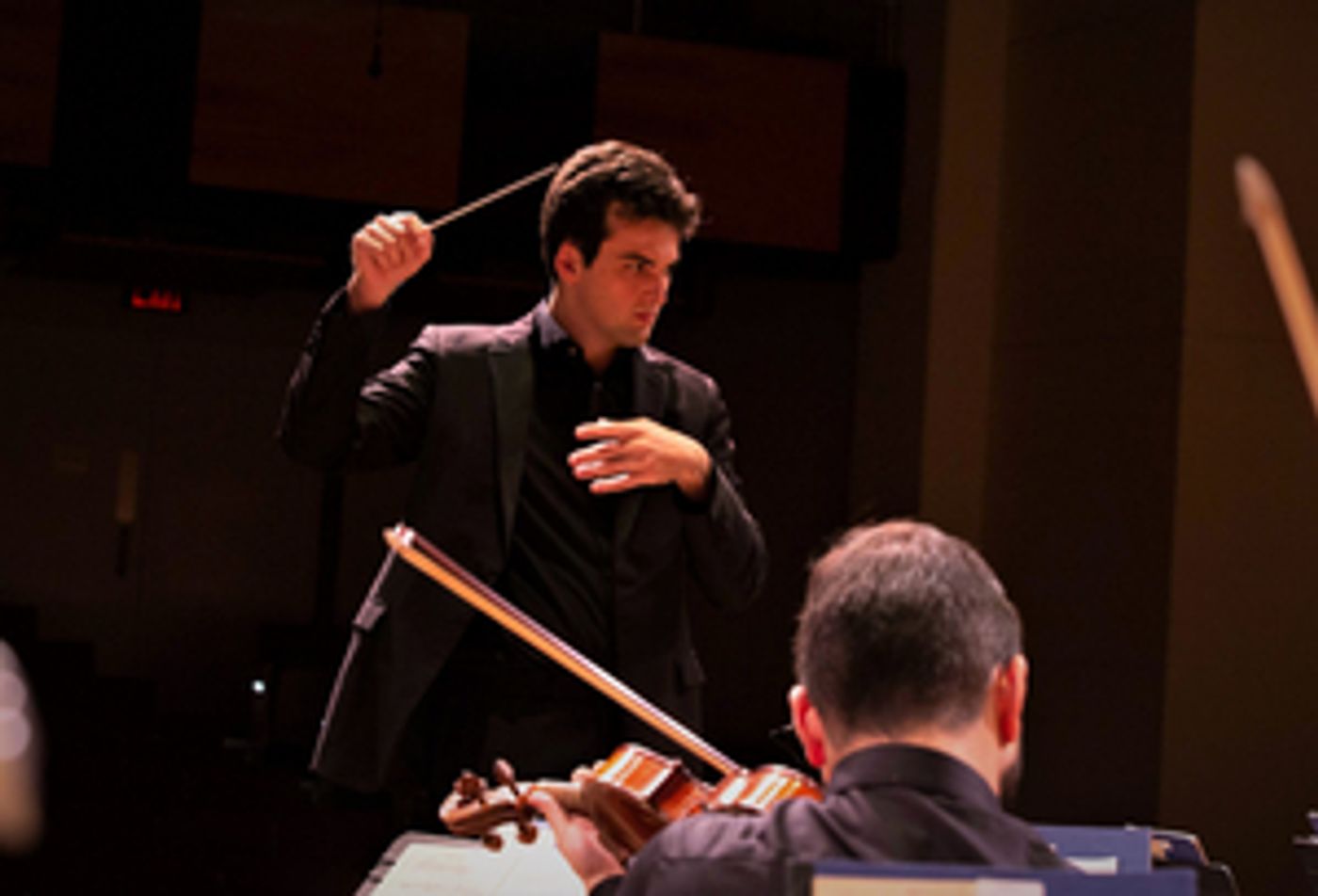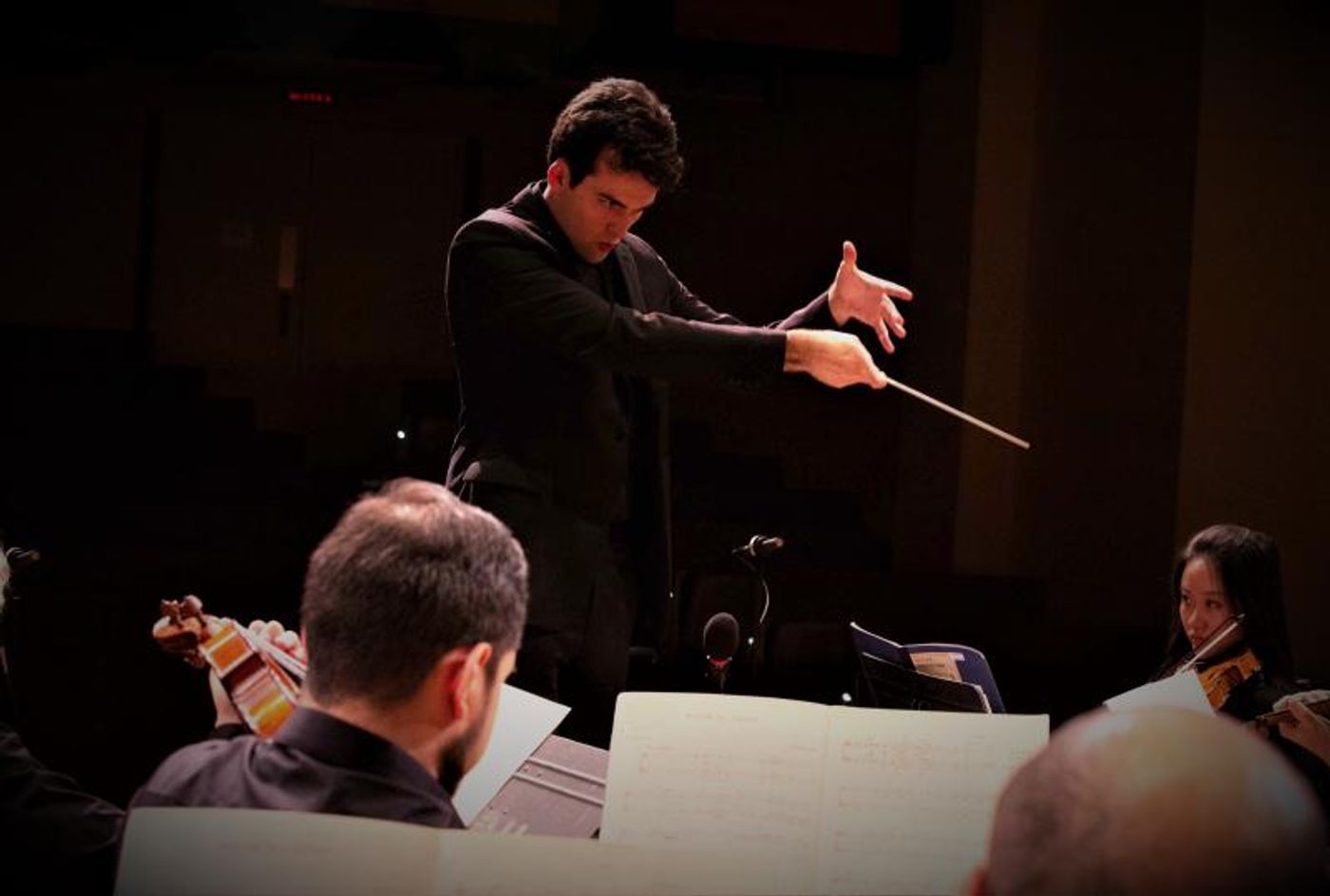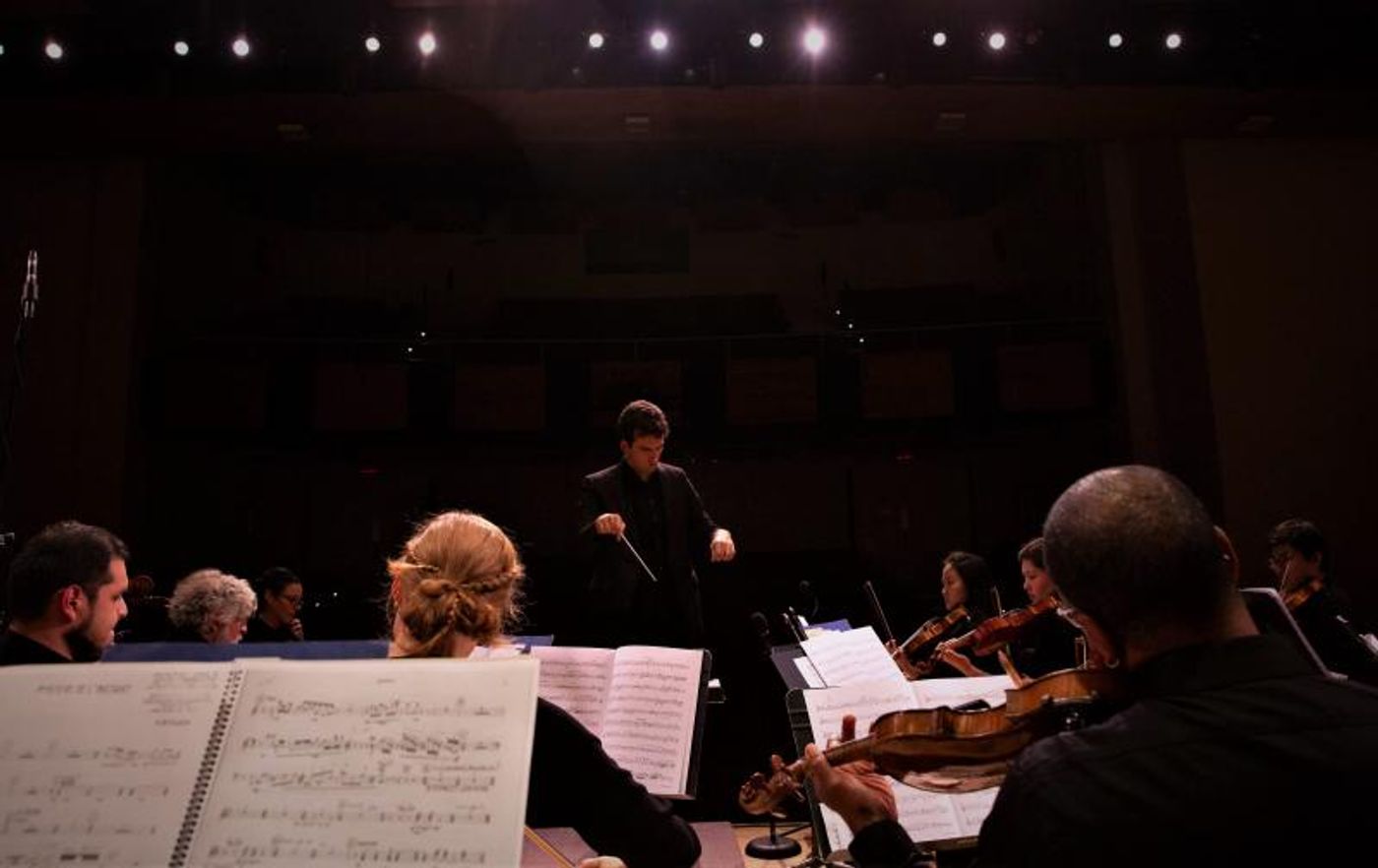Review: PARLANDO NEW YORK DEBUT at Merkin Hall

Auspicious debuts seem to be in the air in NYC this fall. Last month the new Athens Philharmonic blew the roof off Carnegie Hall with an extraordinary Mahler 2 in its debut, and this month a new ensemble called Parlando did the same at Merkin Hall - in a vastly different kind of program.
Parlando is the brainchild of conductor Ian Niederhoffer, a young star on the rise. The mantra of Parlando seems to be: "go big or go home" and that philosophy informed the three eclectic choices on the program for their inaugural concert.
Composer Jessie Montgomery was the recipient of the Leonard Bernstein Award from the ASCAP Foundation and she has become a bit of a favorite among progressive minded maestros and her piece: "Banner" opened the concert. The work was commissioned by the Sphinx Organization as a tribute for the 200th anniversary of the "Star Spangled Banner". In his curtain speech, Niederhoffer explained that the piece is an homage to and a variation on the Star Spangled Banner theme - drawing on musical themes from an array of world anthems and patriotic songs. The triumphant aspect of an anthem was present and snuck to the surface from time to time, but generally floated, well concealed beneath layer upon layer of contrasting themes. The conductor did a fine job of balancing the layers to keep the piece from becoming too dense.
The second offering on the program was the HENRI DUTILLEUX "Mystère de l'instant." Dutilleux's music never became quite as well-known as some other of his contemporaries (his countryman Oliver Messiaen comes to mind) but it is nonetheless extremely compelling. First off, all music is to one degree or another, an acquired taste, and no music is appreciated and popular with everyone. That said, "Mystere" is not beautiful in a conventional sense but it is interesting and certainly worthy of exploration.

The challenge when presenting such a piece (aside from overcoming the skepticism of modern music shared by so many) is to navigate odd tempi, time signatures and harsh chords, and present them in such a fashion as to assure the audience that the sound they are hearing was indeed the composer's intention. The work is a masterpiece to time and texture and from its eerie opening dissonant chords, sinister glissandi and jagged pizzicato, Niederhoffer did an exemplary job of keeping the pulse clean and clear to his musicians - no mean feat!
"Mystère de l'instant" is structured in ten brief movements played without a break in between. The violins begin the piece seemingly fighting against the lower strings to be heard, before coming together in a dark quasi melody. This kind of battle continues throughout the piece with different instruments leading the charge, until the arrival of the cymbalum, played with great passion by Nick Tolle (I'm sure the musician's union would like to thank Parlando for giving work to a cymbalum player!) The piece concludes in a mad, chromatic run that could easily fall apart into a discordant mess, but the maestro kept his charges together with almost military precision. Simple tonality may be wired into the human brain, but Parlando's take on "Mystère de l'instant" made a compelling case for more performances of this challenging work.

The second half of the concert was Richard Strauss' "Metamorphosen." Strauss composed the work during the height of WWII and completed it in 1945. He viewed it as a mournful elegy for the destruction of German culture during World War II. Strauss was a remarkably youthful eighty one years old when he completed the work. Niederhoffer explained to the audience that the composer borrowed motifs from the Funeral March in Beethoven's "Eroica" Symphony, and wrote on the score, "In memoriam." He then had his orchestra play the short section from the Eroica as a prelude to the work.
Written for twenty three string instruments, each with an individual part, the audience was instantly drawn into the late-romantic lushness of the piece (possibly a welcome relief to their ears after the DUTILLEUX?) Niederhoffer, conducting the piece from memory, brought broad unhurried tempi to the piece. The somber opening of the piece set the stage for a deep dark reading. The arc of the piece is often hard to follow, and too often conductors tend to overemphasis the violins, in an attempt to create a primary "theme" - but this kind of approach hides the ravishing counterpoint of the cellos and violas. To his credit, Niederhoffer successfully balanced the layered themes allowing each to shine in its own time. The ensemble was precise throughout the ebb and flow of the multiple themes, though a hint more clarity in some of the more intense moments would have been beneficial.
The piece can sometimes feel like a great big string quartet that has been expanded exponentially (and some might say needlessly) the challenge facing the conductor is to keep the intimacy of the string quartet-like nature, while allowing it to grow and breath to its string orchestra size and power. Luckily, Maestro Niederhoffer was up to the task as he seamlessly kept the energy moving forward from the mournful opening in the low strings to a majestic peak and then back again to a bleak almost hopeless plaintiveness. Very special kudos to the principals: Bora Kim, on violin; Christian Barros, on viola: Diana Golden, on cello; and Peter Weitner on bass - all of whom delivered simply ravishing solo passages.
A twenty minute string piece that only incrementally changes mood from complete hopelessness to slightly doleful can be hard on the audience, but the piece works better live than in recordings. The repeated passages that Strauss masterfully interweaves between the players need to be heard live to fully appreciate, and Parlando's soloists played all of them with a pleading sense of urgency.
With clearly delineated tempi and articulation, Maestro Niederhoffer kept the bleakness and clouds on the horizon, and never let the piece to descend into murkiness, but rather allowed for the gloom and melancholy to inform the piece without overwhelming it.
Parlando chose an extremely ambitious program for its maiden voyage, and the result of the gutsy call was an especially auspicious debut. Maestro Niederhoffer is one to keep an eye on, and Parlando is an ensemble we hope to be hearing a lot more from in the future.
PARLANDO at Merkin Hall
Ian Niederhoffer, Conductor
JESSIE MONTGOMERY - Banner
HENRI DUTILLEUX - Mystère de l'instant
RICHARD STRAUSS - Metamorphosen
-Peter Danish, Classical Editor
Reader Reviews
Videos

